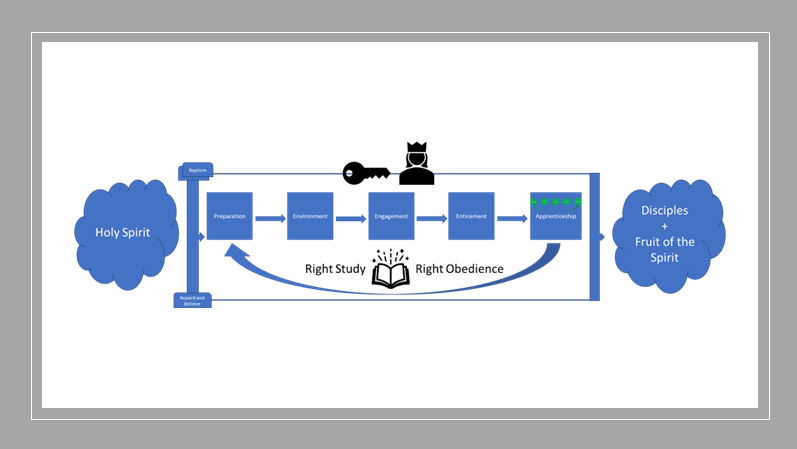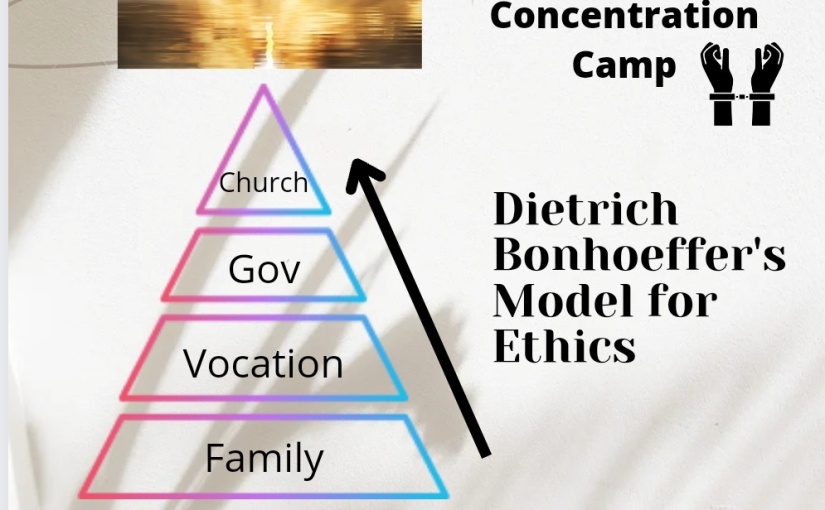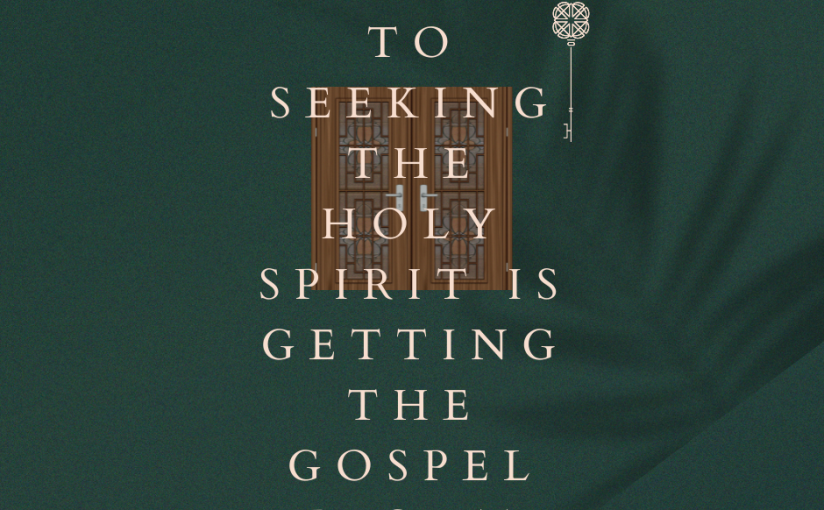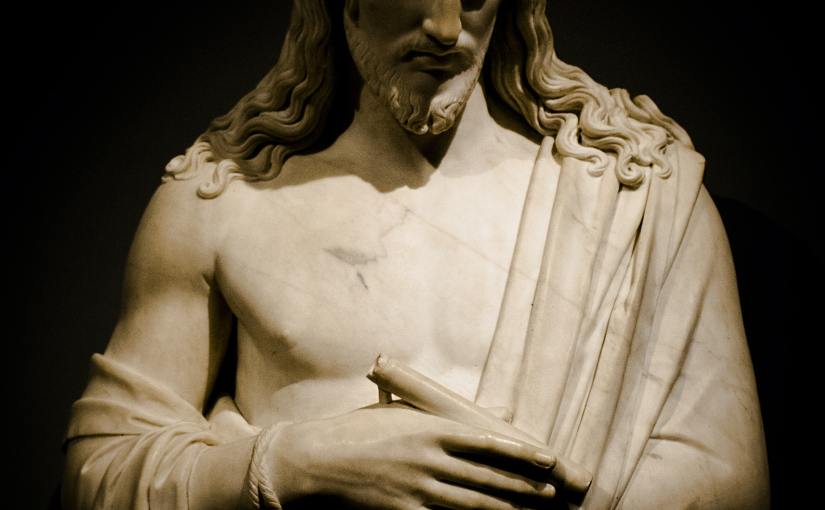
Recently I’ve been working to finish a Masters in System Engineering and I’ve been thinking on the ministry we are doing at Revival in Jesus way and my own time in the Word from a Systems angle. I think thinking of the Christian life as a system has value. Systems have inputs and outputs. Contain the inward parts that take those inputs and produce the desired output. So to bring a subject into systems thinking means really thinking about the desired output, what the needed input is, and then what exactly goes into the process in the middle to bring about the outputs.
In looking across the Bible especially in the gospels and Acts where we see disciples in action the pattern above seems to be very standard. The central part of the system stood out as I’ve been studying Matthew with a friend over the past couple of weeks. This pattern especially stood out as I’ve been working on chapter overviews and key points for Matthew 3 and 4.
In Matthew 3, Jesus is baptized in John’s baptism of repentance and then the Holy Spirit descends on Him in the form of a dove. While most people recognize from John the Baptist’s own words that Jesus did not need a baptism of repentance, John says “you should be the one baptizing me”, still Jesus chose to be baptized and mark his entry into Messiah work by that distinct mark. He then clearly and obviously received the Holy Spirit (this is the second baptism on the top of the Holy Spirit input). We can assume based on Jesus’ lack of doubt and embracing of the Father speaking to Him (“this is my beloved son, in whom I am well pleased”) that Jesus clearly believed that God was His Father, that He was being called out by the Father for what He needed to do.

Following Jesus receipt of the Holy Spirit He enters into a preparation time. He is then led into the wilderness to fast for 40 days in order “to be tempted by the devil” Matt 4:1. Jesus is then led through specific temptations that test Him which He makes it through with flying colors. This reminds me of Peter’s time following his rejection of Jesus and being called to “feed my sheep” by Jesus or Paul’s departure to Arabia for some years following his conversion and receipt of the Spirit that he describes in Galatians 1:16-17. There is this deliberate preparation time in getting the person set for the mission this new Christ follower (or Christ Himself first) that happens.

There is then the setting of the environment, sometimes this is a given such as with the disciples Paul leads to faith who stay in their hometown but often following the preparation there is a leading into an environment in which to do ministry. For instance, in Matthew 4:12-13 Jesus moves His home to Galilee following Johns imprisonment. This is the place in Matthew we see Jesus really begin His ministry. In Matthew 4:16 prophecy is quoted showing that “the people who sit in darkness have seen a great light”. This statement is made specifically about Galilee Jesus’ new home.

Jesus then begins to go out and preach the gospel (4:17) and walks along the sea and picks up disciples. This too is what Paul or Peter do once they are settled into an area beginning to go out and share the gospel, healing the sick, casting out demons and taking on individuals for training.

As Jesus engages with the people being to draw to Him to hear from Him “so a report about him spread throughout Syria.” Matt 4:24, Jesus now has crowds He is engaging with and from which He finds future disciples. We see a similar pattern with both Peter, Paul and the disciples in Acts. Once they have begun to engage soon their are groups wanted to hear about their message and see for their selves the healing etc. I’m calling this the enticement stage in the ministry system.

The rest of the model is not explicitly seen in Matthew 3-4 but is hinted at. For instance, in Matt 4:19 Jesus calls Peter and Andrew and says He will “make them fishers of men” clearly indicating a sort of training program they are now engaging in and this is clearly seen through the rest of the gospel. This Apprenticeship is the discipling of individuals to get them to be Christ followers who are living as Jesus lived. So, the Apprenticeship part of the system has the whole loop in it, because this is what the disciple is being led through. It also restarts the loop, because now a new Christ follower has entered the Biblical Ministry System pattern.


The output of the system is in line with Matthew 28:19-20 and Galatians 5:22 (as one example of each) the clear goal laid out for the Christ-follower is to produce disciples and to have the fruit of the Spirit produced internally.
The Key and King represents that each step in the system is done in Jesus’ way. This is why in Acts one of the most common names (and my favorite) for Christ followers is followers of the Way. This points back to Jesus’ words saying He is “the way the truth and the life” John 14:6. So we find the details of each step by looking at Jesus’ life specifically. We can also learn from the disciples lives in Acts, as Paul indicates in Philippians 3:17 “be imitators of me, brothers and sisters, and watch carefully those who are living this way, just as you have us as an example”.
The final piece left on the diagram is the Word with Right Study and Right Obedience on the sides. This part is so key and often harped on by Jesus and in the New Testament letters as well as in the Old Testament. We need to rightly examine the word and then to go on and obey what it really says. There are not multiple ways of reading the Bible. There are not multiple valid interpretations on the vast majority of things there is the purpose and intent written by the author, inspired by the Spirit, that we are in fact meant to get to when studying and applying scripture. This is key to living out the Biblical Ministry System well and producing the results that God calls us to.
Interested in feedback if you have any and hopefully this can help a few people to be able to better grasp what it means to pursue Christlikeness.


















